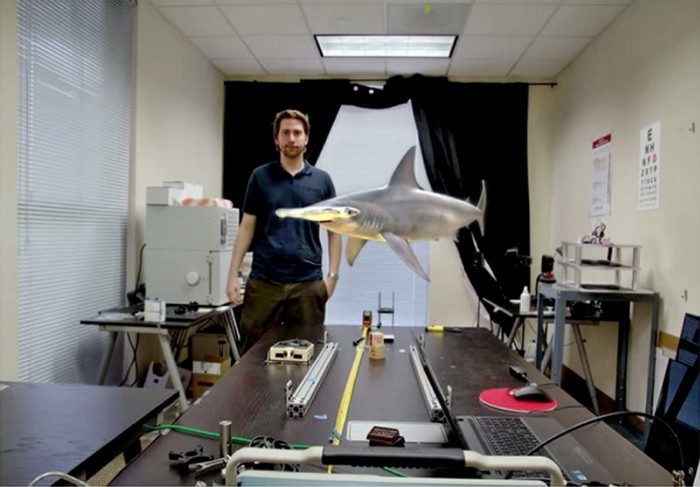According to a press release revealed today, Magic Leap has closed a $524 million Series B funding round led by Google; the deal had been rumored as of last week. Magic Leap, which has been in stealth since its inception, is being a bit more wordy now that the deal has closed (but hardly less vague). The company is now soliciting developers on its website and says that “under the appropriate non-disclosures, we’d love to talk possibilities.”
Magic Leap appears to be working on an augmented reality wearable which uses a lightfield display that can apparently generate very realistic looking imagery, not only from a graphical standpoint, but also from physiologically accurate standpoint—possibly utilizing a lightfield’s unique ability to render imagery that has perfect stereoscopy, including accurate accommodation and vergence.
See Also: Reportedly on the Verge of a $500m Investment, Here’s What We Know About Magic Leap
Magic Leap’s Series B was led by Google and also included Qualcomm Ventures, Legendary Entertainment, KKR, Vulcan Capital, Kleiner Perkins Caufield & Byers, Obvious Ventures, Andreessen Horowitz (which invested in Oculus), and others, according to a press release issued by Magic Leap. Some have speculated that Google’s interest in Magic Leap’s technology comes from the desire to integrate it with Google Glass, the company’s wearable display.
“Sundar Pichai, SVP of Android, Chrome and Apps at Google Inc., will join Magic Leap’s board of directors. Dr. Paul E. Jacobs, Executive Chairman of Qualcomm Incorporated and Don Harrison, Vice-President, Corporate Development at Google Inc. will join the board of directors of Magic Leap as observers,” reads the release. “The company will use the proceeds to accelerate product development, release software development tools, expand its content ecosystem, and commercialize its proprietary mobile wearable system.”
The company’s massive Series B comes after a $50 million Series A which closed earlier this year in February and interestingly involved Weta Workshop, installing co-founder Richard Taylor onto Magic Leap’s board of directors.
Now that the deal is done, Magic Leap has made some updates to its website, revealing a touch more info, but still not sufficiently spilling the secret that led Google and others to drop more than half a billion dollars on the company.

“Using our Dynamic Digitized Lightfield Signal™, imagine being able to generate images indistinguishable from real objects and then being able to place those images seamlessly into the real world,” teases the company’s ‘Developers’ page, which is now open for developers to submit their interest. “For the time being, we’re being a little tight-lipped in what we’re communicating publicly, but under the appropriate non-disclosures, we’d love to talk possibilities,” it continues. In the digging we did recently, we found that the company may be releasing development kits at some point over the course of the next year.
The company has also launched a beefy hiring page with 68 available positions covering hardware engineering, core software engineering, perception/machine vision, gaming, and administration.
Assuming that the company has perfected the miniaturized lightfield display and is capable of generating high fidelity AR imagery, questions still remain: What’s the field of view? Can they nail the all-important head tracking? What are the limitations of the display’s transparency and color reproduction? Hopefully we’ll have these answered in time.







